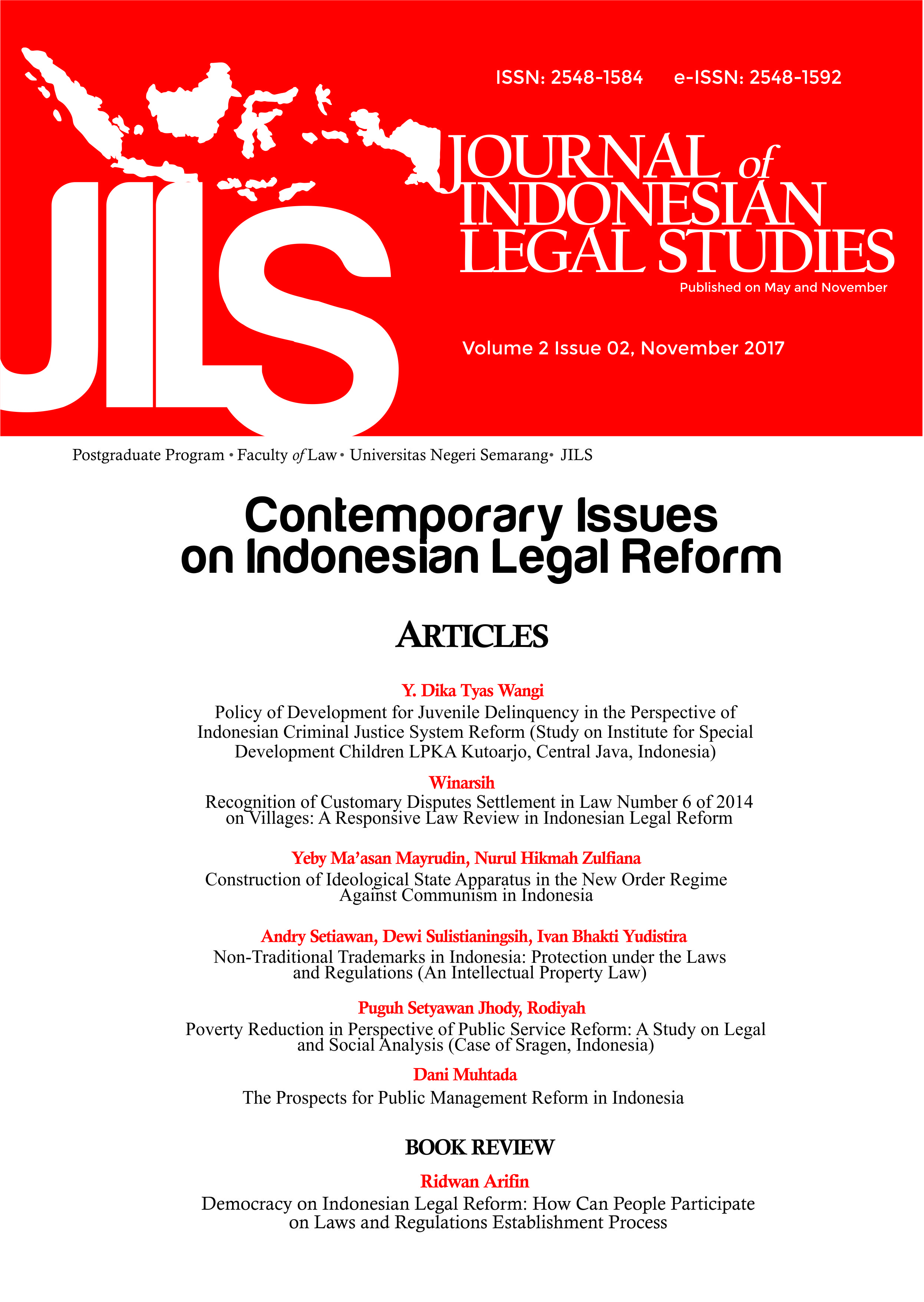The Prospects for Public Management Reform in Indonesia
Main Article Content
Abstract
After the fall of Suharto, the government of Indonesia has started to reform its public sector. The reform began with the introduction of Law 22/1999 on Regional Autonomy and Law 25/1999 on Fiscal Equalization between Center and Regions. The laws have created a huge wave of decentralization in almost all aspects of the management of Indonesia’s public sector. Yet, the future of such a reform is debatable. This article discusses the prospects for public management reforms in Indonesia. This author argues that the government needs clear rules for effective implementation of decentralization. The government also needs to reinforce the role of provincial governments as the agents of the central as well as the coordinator of district governments. Furthermore, the government needs to set standard budgeting, auditing, and reporting procedures for all local budgets, and mechanisms in order to monitor sharing of natural resources revenue and transfers. Last but not least, the role of non-government organizations (NGOs) and mass media is highly significant and required for a successful reform of public management.
Article Details

This work is licensed under a Creative Commons Attribution-ShareAlike 4.0 International License.
All writings published in this journal are personal views of the authors and do not represent the views of this journal and the author's affiliated institutions. Author(s) retain copyrights under the licence of Creative Commons Attribution-ShareAlike 4.0 International (CC BY-SA 4.0).
References
Dwidjowijoto, R. N.Otonomi Daerah: Desentralisasi Tanpa Revolusi. Jakarta: PT Elex Media Komputindo, 2000.
Lembaga Administrasi Negara. Evaluasi Kinerja Penyelenggaraan Otonomi Daerah Periode 1999-2003. Jakarta: Pusat Kajian Kinerja Otonomi Daerah, 2005.
Mera, K. “The Big Bang Decentralization in Indonesia and the Lessons Learnedâ€, paper presented at the International Workshop Urban Government in Global Perspective, at University of Southern California, September 17 – 18, 2004.
Nababan, H. “Water Privatization: Learning from Indonesian Casesâ€, 2004. retrieved on April 13, 2010, http://www.freedomfromdebtcoalition.org/main/pages/000198.php
Rabasa, A., and Chalk, P. Indonesia’s Transformation and the Stability of Southeast Asia. Pittsburgh, PA: RAND, 2001.
Rinaldi, T., Purnomo, M., and Damayanti, D.“Fighting Corruption in Decentralized Indonesia: Case Studies on Handling Local Government Corruptionâ€, 2007. retrieved April 15, 2010, from http://siteresources.worldbank.org/INTJUSFORPOOR/Resources/FightingCorruptioninDecentralizedIndonesia.pdf
Sarundajang, S. H. Birokrasi dalam Otonomi Daerah: Upaya Mengatasi Kegagalannya. Jakarta: Pustaka Sinar Harapan, 2003.
Suharyo, W. I. “Indonesia’s Transition to Decentralized Governance: An Evolution at the Local Levelâ€, SMERU Working Paper presented at the seminar on Decentralization and Regional Development in Indonesia, May 15-16, in Yogyakarta, Indonesia, organized by the Center for Asia Pacific Studies – UGM in cooperation with the Department of Anthropology, Leiden University, 2003.
The Asia Foundation. Indonesia Rapid Decentralization Appraisal (IRDA). Fourth Report, retrieved April 15, 2004, from http://asiafoundation.org/pdf/IRDA4_English.pdf
The World Bank. Decentralizing Indonesia: A Regional Public Expenditure Review, Report No. 26191-IND, retrieved April 15, 2003. http://unpan1.un.org/intradoc/groups/public/documents/apcity/unpan014188.pdf
Turner, M. and Podger, O. Decentralization in Indonesia: Redesigning State. Canberra: Asia Pacific Press, 2003.
Zaman, M. “Restructuring of the Water Sector in Indonesia: An Institutional and Legislative Challengeâ€, 2002, retrieved on April 13, 2010, http://www.bicusa/issues/misc_resources/455.php
